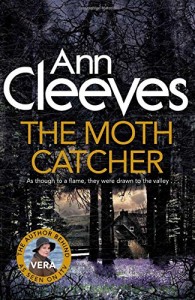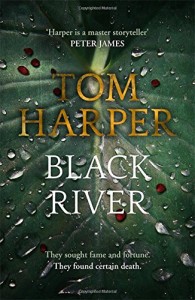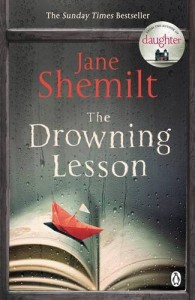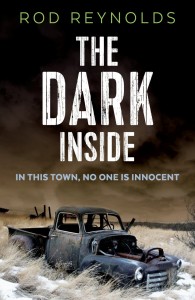 The Moth Catcher by Ann Cleeves
The Moth Catcher by Ann Cleeves
Published by Macmillan
Black River by Tom Harper
Published by Hodder & Stoughton
Solomon Creed by Simon Toyne
Published by HarperCollins
The Drowning Lesson by Jane Shemilt
Published by Penguin
The Dark Inside by Rod Reynolds
Published by Faber & Faber
The Ann Cleeves phenomenon is one of the most interesting developments in crime writing of the last few years. Until she wrote Raven Black, which won the CWA Duncan Lawrie dagger, this author was not well known in the world beyond crime fiction. Since the television versions of her Vera and Shetland series have been broadcast, her work has at last been brought to the attention of readers, who have loved what she gives them. She has now achieved wide recognition and great success. This does not happen to every author whose work is dramatized. Indeed one highly-regarded crime writer once said that the television version of his novels actually harmed his sales. Cleeves’s success is particularly interesting because she eschews the graphic violence and high intensity that have been fashionable for some time. Her victims are ordinary people, whose misfortune has brought them to the attention of other relatively ordinary people, who have something to hide or something to fear.
In The Moth Catcher DI Vera Stanhope and her team are investigating the deaths of two men found near a big house in Northumberland. One body is that of the house-sitter  employed by the absent owners; the other, a troubled, geekish man working for a small local charity. Before the police can catch their killer, someone else is murdered and suspicion falls on several members of the small local society.
employed by the absent owners; the other, a troubled, geekish man working for a small local charity. Before the police can catch their killer, someone else is murdered and suspicion falls on several members of the small local society.
Cleeves’s writing has nothing flashy about it, and her engaging characters’ emotions are uncomplicated. ‘Vera leaned forward with her elbows on her knees. She thought this was as happy as she got, digging around into the background of her subjects.’ Towards the end of the novel, Vera watches one woman hugging another: ‘It occurred to her…that she’d have nobody to comfort her in a tragedy. She thought it was probably simpler that way, and besides she’d never been able to cope with sympathy.’
Ann Cleeves’s quiet investigations of quiet but violently disrupted lives in the north east of England offer readers a pleasure that has nothing to do with the escapism provided by either cosy village mysteries or glittering, blood-dripping melodrama. She deals honestly with the effects of deprivation, family dysfunction, and the human need for justice in the face of ill treatment. She has filled an important gap in the kinds of crime fiction that are promoted by publishers.
 Two adventure thrillers out this month provide the greatest possible contrast to Ann Cleeves’s quietness. Tom Harper’s hero in Black River is Kel MacDonald, a British anaesthetist with a charming wife and daughter – and a serious case of mid-life frustration. In spite of every instinct for survival and the protection of his family, he succumbs to the dodgiest possible invitation to join an expedition into the uncharted interior of the Peruvian Amazon to find the fabled lost city of Paititi. The other members of the expedition have their own advertized reasons for wanting to get there, but very little is as it seems and serious danger soon threatens them from all sides.
Two adventure thrillers out this month provide the greatest possible contrast to Ann Cleeves’s quietness. Tom Harper’s hero in Black River is Kel MacDonald, a British anaesthetist with a charming wife and daughter – and a serious case of mid-life frustration. In spite of every instinct for survival and the protection of his family, he succumbs to the dodgiest possible invitation to join an expedition into the uncharted interior of the Peruvian Amazon to find the fabled lost city of Paititi. The other members of the expedition have their own advertized reasons for wanting to get there, but very little is as it seems and serious danger soon threatens them from all sides.
To someone like me, who detests travel, these amateur explorers and treasure-hunters deserve all the terrors, illnesses and deaths that are visited on them. Of course if you will go to Abroad, you must expect to face this kind of horror. But I couldn’t stop reading, fascinated by the masochism of adventure-lovers and gripped by the pacy plot. By the time some of the expedition’s members returned, I was exhausted, but I had had great fun – and wasn’t bitten by a single mosquito: armchair adventure at its best.
Simon Toyne’s well written thriller, Solomon Creed, offers similar excitement. He takes the familiar figure of the stranger who rides into town to save the inhabitants from evil-doers and adds some interesting twists. The first is that this saviour figure has no idea who he is as he stumbles away from a downed and burning aeroplane in the shadow of the Chinchuca Mountains, just outside a city called Redemption in Arizona. He and the reader must discover his identity together as he faces the criminals and fights to protect the innocent. The plot, which includes some convincingly horrible Mexican drug lords, is clever and well structured. The eventual revelation of Solomon Creed’s identity is  not entirely to my taste, but that’s a purely personal matter, and it is managed very neatly.
not entirely to my taste, but that’s a purely personal matter, and it is managed very neatly.
Jame Shemilt combines the domestic nature of Ann Cleeves’s work with some of the exoticism of these adventure thrillers in her second novel, The Drowning Lesson, which is set partly in London and partly in a Botswana that is much fuller of realistic nightmares than Mama Ramotswe’s. The plot follows another familiar model, with the abduction of a baby, but the characters are fresh enough and believable enough to bring new life to this particular subgenre. The baby’s mother, the first person narrator of the novel, is a surgeon; his father, an oncologist;  and they have an interesting marriage, which swings between passionate love and equally enthusiastic competition. They also have two daughters. The psychology and the family dynamics form a crucial part of the plot, which effectively wrong-footed me. Its twists and revelations come at the ideal moments.
and they have an interesting marriage, which swings between passionate love and equally enthusiastic competition. They also have two daughters. The psychology and the family dynamics form a crucial part of the plot, which effectively wrong-footed me. Its twists and revelations come at the ideal moments.
Rod Reynolds has gone to the border between Texas and Arkansas for his first novel, The Dark Inside. This is an effective, cleverly written, modern version of traditional American noir, set in 1946 and based on a real serial-killing case. The main character, Charlie Yates, is a New York journalist on the skids, with a serious anger-management problem, and yet Reynolds manages to make him thoroughly engaging. With new writers like these coming up, the future of crime-writing looks bright.
